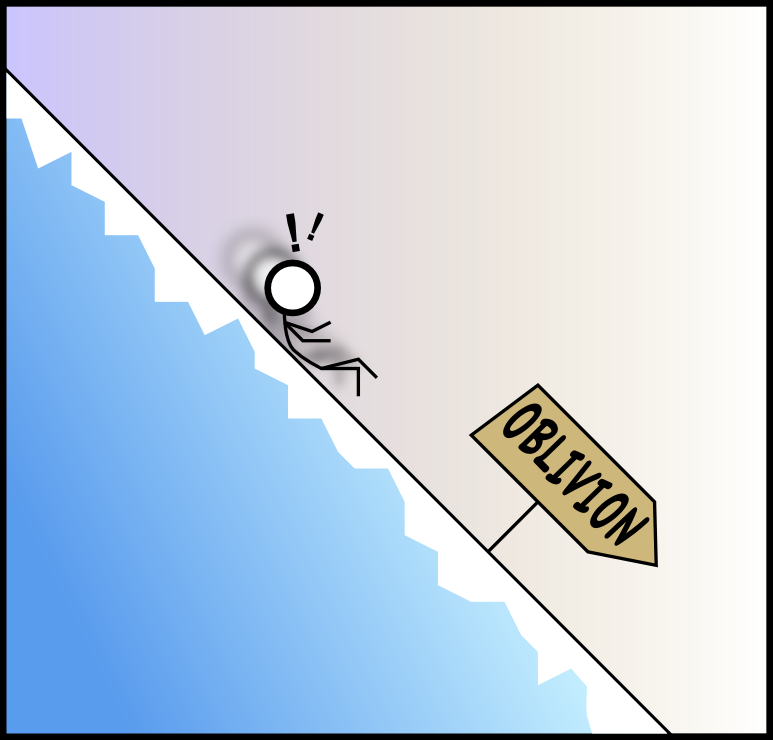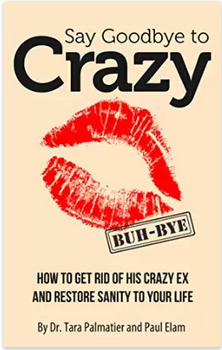 I keep thinking about that self-absorbed, self-indulgent, self-pitying, navel-gazing Gemma Hartley piece of bourgeois privileged women’s faux-oppression porn, Women Aren’t Nags — We’re Just Fed Up published on Harper’s Bazaar. It’s really bothersome. In my opinion, it’s an offense to both reason and reasonableness.
I keep thinking about that self-absorbed, self-indulgent, self-pitying, navel-gazing Gemma Hartley piece of bourgeois privileged women’s faux-oppression porn, Women Aren’t Nags — We’re Just Fed Up published on Harper’s Bazaar. It’s really bothersome. In my opinion, it’s an offense to both reason and reasonableness.
Gemma Hartley: Don’t Call her a Whiny Nag — She Has Emotional Labor Trauma! is my first reaction to the labors of hair braiding, hiring a maid and one’s spouse not being able to read one’s mind. Not kidding, read the original article and my response. The concept of emotional labor as it’s been co-opted and misapplied by Gemma and two PhDs, isn’t just bothersome; it’s downright disturbing. The fact that it’s been viewed 880.4k times and counting and shared who knows how many times on social media with a #metoo fou de joie is, frankly, terrifying. And I finally realized why.
First, let’s understand what the concept of emotional labor was originally intended to explain. I missed the meaning of it, too, during the sustained brain implosions from reading Gemma’s whinery. To quote Inigo Montoya (The Princess Bride), “You keep using that word. I do not think it means what you think it means.” The concept of emotional labor was not intended to apply to intimate or family relationships. According to Wikipedia:
Emotional labor is the process of managing feelings and expressions to fulfill the emotional requirements of a job. [1][2] More specifically, workers are expected to regulate their emotions during interactions with customers, co-workers and superiors. This includes analysis and decision making in terms of the expression of emotion, whether actually felt or not, as well as its opposite: the suppression of emotions that are felt but not expressed.
Roles that have been identified as requiring emotional labor include but not limited to those involved in public administration, flight attendant, daycare worker, nursing home worker, nurse, doctor, store clerk, call center worker, sex worker, teacher, librarianship, social worker; most roles in a hotel, motel, tavern, bar, pub, and restaurant; and jobs in the media, such as television and radio.[3] As particular economies move from a manufacturing– to a service-based economy, many more workers in a variety of occupational fields are expected to manage their emotions according to employer demands when compared to sixty years ago.
Gemma feels exhausted “suppressing” her feelings of resentment, frustration, anger and guilt toward her husband, young sons and being a stay at home parent. (Just my clinical opinion, she’s not suppressing anything.) She doesn’t seem to enjoy the daily grind of housekeeping and parenting. Fair enough. If I’d made similar choices and were similarly disenchanted, I’d like to think I’d have a heart to heart with my spouse about re-entering the work force instead of seething with resentment and blaming my partner and opposite sex children for my dissatisfaction with my life choices. (*Gemma writes fondly of her daughter who does what she wants her to so without being told and without expecting praise or encouragement — seriously, read the article).
If any stay at home moms reading this are feeling defensive, I’m not belittling your choices. Nor am I saying that staying at home with infants and children too young for school isn’t work. However, choosing to stay at home means kids and housework. Working full-time outside the home typically isn’t a glamour profession either. Working outside the home frequently means smiling and taking it when the boss is in one of her or his moods and dealing with angry customers or clients who just want to unload. Unlike a customer service job, we can share our feelings and thoughts with our partners, that’s if it’s safe to do so (i.e., not married to an abusive, entitled bully).
Marriages in which the partners have mutually agreed one parent will stay at home are happiest and healthiest when both partners respect and appreciate their respective contributions inside and outside the home. Stay at homes, do you remember to thank your partner who goes into the workforce and solely shoulders the financial burden, or do you take that for granted as what “he’s supposed to do?” Isn’t housework and childcare what the stay at home parent is “supposed to do,” too? Let’s all appreciate each other.
Gemma feels guilty about her frustration, anger and resentment that marriage and stay at home parenting isn’t all that she thought it would cracked up to be. She believes that “having” (no one’s forcing her to do anything from what I can tell) to pretend like it doesn’t bother that her husband doesn’t “instinctively know” (i.e., mind read) how to do what she wants at any given moment in terms of helping with the house and the kids is emotional labor. I know that doesn’t mean what she thinks it means.
Her home isn’t her place of employment (freelance blogging aside). Her husband isn’t her boss and the kids aren’t her customers or colleagues. They are her family. There’s no HR policy for emotional labor or labor laws for actual emotional labor. Sometimes the people we work with and for can be dicks. Sometimes customers are dicks.
Adults suck it up, deal with it and get their pay. If it crosses the line to workplace abuse and harassment, that’s another matter. Just because someone feels uncomfortable at work doesn’t equate to harassment or abuse either. When I wasn’t self-employed, I often felt “uncomfortable” when listening to former colleagues express their views about men, feminism, their menstrual cycles, petty gossip about colleagues, their religious beliefs and their political beliefs. We can’t police everything, folks. Sometimes being an adult means dealing with feeling “uncomfortable,” but I digress.
According to the definition of emotional labor, what Gemma’s experiencing, and many of the people who relate to her post, isn’t emotional labor. At best, it’s emotion work gone very awry. Quoting Wikipedia again:
The sociologist Arlie Hochschild provides the first definition of emotional labor, which is a form of emotion regulation that creates a publicly visible facial and bodily display within the workplace.[1] The related term emotion work (also called “emotion management”) refers to “these same acts done in a private context”, such as within the private sphere of one’s home or interactions with family and friends. Hochschild identified three emotion regulation strategies: cognitive, bodily, and expressive.[4] Within cognitive emotion work, one attempts to change images, ideas, or thoughts in hopes of changing the feelings associated with them.[4] For example, one may associate a family picture with feeling happy and think about said picture whenever attempting to feel happy. Within bodily emotion work, one attempts to change physical symptoms in order to create a desired emotion.[4] For example, one may attempt deep breathing in order to reduce anger. Within expressive emotion work, one attempts to change expressive gestures to change inner feelings.[4] For example, one may attempt to smile when trying to feel happy. One becomes aware of emotion work most often when one’s feelings do not fit the situation. For instance, when one does not feel sad at a funeral, one becomes acutely aware of the feelings appropriate for that situation.[4]
Emotion work or management sounds like emotional regulation. Not being able to manage our emotions is called emotional dysregulation. A persistent history of emotional dysregulation is one of the hallmarks of borderline personality disorder, narcissistic personality disorder and the other Cluster B disorders. Emotional dysregulation isn’t the fault of one’s spouse or children. It’s the responsibility of the dysregulating individual to manage.
If Gemma were actually doing the necessary emotion work, she would never have written the Nag post. Her article is a manifestation of not having done her own work. For example, there’s a profound lack of personal responsibility for her emotions and choices. Her husband isn’t oppressing her or taking her for granted. He’s not disrespectful of or unappreciative of her contributions. Gemma admits he is happy to help her when asked. She’s resentful and pissed that she has to ask, believing that he should instinctively know what she wants or needs.
Successful adults are able to clearly communicate our expectations, wants, needs and feelings. Children and teens pout because, “Nobody understands!” If you feel misunderstood, then explain yourself. But if you’re going to claim there’s gender inequality in your marriage because YOU are placing the unrealistic expectation on yourself to “elaborately braid your daughter’s hair everyday,” then don’t braid her hair everyday. High pony it. If I were Gemma’s husband, she’d have to “gingerly explain” why that’s an example of emotional labor, too, because I’d pointblank ask her if she’s gone off the deep end if she said that to me.
I’ll take it one step further. If you’re not an infant incapable of speech, use your words. A partner isn’t your parent. We’re not always able to recognize the subtle difference in your distress cries. Even parents of actual infants can’t do that. If you choose to use your words, remember that feelings aren’t facts. If your requests or demands are unreasonable (or straight up batshit, controlling, irresponsible, abusive or delusional) your partner doesn’t have to comply with your exact wishes or even validate your feelings.
Again, this goes for women and men. My male narcissistic ex had and entire lexicon of distress noises. Like the Eskimo have 50 words for snow, my narcissistic ex had 50 forms of sighing and 50 sullen pouty faces. When I’d ask what was troubling him, he’d become aggrieved because he expected me to be a mind reader, too. I’m fairly intuitive and observant, but I’m not a psychic and neither are the majority of human beings, male or female. We’re not abusive or disrespectful to our partners, current and former, because we’re not able to instinctively sense their inner emotional landscape. At best, it’s an unrealistic expectation of someone who has some growing up to do. At worst, it’s evidence of characterological pathology.
“That’s the point,” I said, now in tears, “I don’t want to have to ask.” (Gemma Hartley)
What bothers and scares me the most about Gemma’s victim manifesto is that, while she never uses the words female victims or female victimization, that seems to be Gemma’s underlying message and the message of the PhDs she quotes — Dr. Michelle Ramsey (Communications Arts and Sciences at Penn State Berks, not a psychologist) and Dr. Lisa Huebner (Sociologist of Gender at West Chester University of Pennsylvania, also not a psychologist). Gemma uses this quote to prove her point and I, too, will use it to prove my point:
“This is not to say that some individuals do not manage emotion better than others as part of their own individual personality, but I would argue that we still have no firm evidence that this ability is biologically determined by sex. At the same time (and I would argue because it is not a natural difference) we find all kinds of ways in society to ensure that girls and women are responsible for emotions and, then, men get a pass.”
This isn’t a man-woman thing. It’s an emotionally stable, healthy adult personal responsibility thing, regardless of gender. Exactly whose emotions does Gemma feel responsible for? Certainly not her own. She spends most of the article blaming her helpful husband and two young boys for her emotions. Her feelings of upset are due to not liking the drudgery parts of being a stay at home parent and the fact that the male persons in her life aren’t mind readers. She’s also upset her husband doesn’t understand why she feels oppressed and victimized because she chooses to “elaborately braid her daughter’s hair” or say “thank you” when he and their sons do what she asks them to do, that’s when she isn’t being passive-aggressive and expecting them to be dutiful psychic automatons.
Here’s the terrifying part — there are PhDs who are perverting the concept of emotional labor into some kind of patriarchal abuse. The way they define emotional labor has nothing to do with how it was first conceptualized by Arlie Hochschild. Emotional labor is something women and men often engage in as part of their work. It’s not a form of workplace victimization. It means smiling when you’re rather tell your boss or customer to go f-ck themselves. It’s part of being an adult and learning how to conduct ourselves appropriately.
Huebner and Ramsey have completely twisted it into a new form of patriarchal abuse that, naturally trickles down to intimate relationships. Specifically, Ramsey, Huebner and Hartley are claiming that women who engage in passive-aggressive behavior, emotional dysregulation, bitterness about unmet unrealistic expectations, bitterness about their own life choices and men’s inability to mind read are victims of the patriarchy.
The crying, the snapping at him—it all required damage control. (Gemma Hartley)
Funny, when I did my graduate training, the people on the receiving end of these behaviors were considered the victims and the perpetrators of these behaviors were considered the abusers. Granted, these behaviors were largely attributed to narcissists, a group then considered to be predominantly male. I’ve long believed the percentage of narcissists are equally distributed between the sexes. It was probably skewed for so long due to gender biases in diagnosis.
While Gemma’s attitudes and distorted thinking is problematic, she’s not the problem. She’s just one of the current mouthpieces of a subset of the population. It’s one of the subsets of our population that have me very worried. The subset on the other far side of the continuum have me very worried, too.
If we normalize and legitimize this perversion of emotional labor into a form of domestic violence we will finally slip off the slippery slope we’ve been sliding down for so long now. Do women really believe we’re being abused and need therapy because men can’t read our minds? Does anyone else think that sounds completely crazy? Do we really believe that men not being able to instinctively gauge our wants and needs is evidence of patriarchal oppression?
Are we really going to define our husbands and boyfriends’ desire to receive a thank when they help us out, even if we ask them for the help, as gender inequality and patriarchy? Isn’t that just basic common courtesy, which hopefully goes both ways? Don’t we like being told thank you when we do something helpful? Can someone more mainstream than me please speak up and call bullshit on this? Are we really going to go there?
 Counseling, Consulting and Coaching with Dr. Tara J. Palmatier, PsyD
Counseling, Consulting and Coaching with Dr. Tara J. Palmatier, PsyD
Dr. Tara J. Palmatier, PsyD helps individuals work through their relationship and codependency issues via telephone or Skype. She specializes in helping men and women trying to break free of an abusive relationship, cope with the stress of an abusive relationship or heal from an abusive relationship. She combines practical advice, emotional support and goal-oriented outcomes. Please visit the Schedule a Session page for professional inquiries.
 Want to Say Goodbye to Crazy? Buy it HERE.
Want to Say Goodbye to Crazy? Buy it HERE.
Perhaps I should have given Dr. T a Trigger Warning before posting a link to this article (;-)
On the one hand, this is another instance of putting a new name on the standard complaint that a lot of the invisible work of household management falls to women and is un- or under-appreciated. Things like making doctor’s appointments, researching and arranging summer camps, shopping for school supplies, sending out Christmas cards, etc. Come up with a snappy term, throw your husband under the bus with some embarrassing anecdotes, send it to a click-bait site, and you, too, can have a viral article. The Keeper (https://community.today.com/parentingteam/post/i-am-the-keeper), The Default Parent (https://www.huffingtonpost.com/m-blazoned/the-default-parent_b_6031128.html), etc.
Some of these articles are better than others. Some have a tone of appreciation, others more of bitterness. Usually, they’re considered a harmless way for women to blow off steam and bond over their shared burdens.
But, “Unpaid Emotional Labor” is not harmless in two dimensions.
As Dr. T noted, it puts a false veneer of academic rigor on these complaints. It’s not just that my husband was pre-occupied and didn’t hear the dog asking to go out; he is the living embodiment of generations of patriarchal oppression that must be resisted if future generations are to have any hope of escaping.
Second is turning intimate family relationships into market transactions. Now, taking care of you when you’re sick, or phrasing my complaints in a civil manner, or passing on an opportunity to criticize you isn’t just an act of love; it’s an instance of “emotional labor” for which I am entitled to compensation, or at a minimum, brooding over.
This is poison for loving relationships.